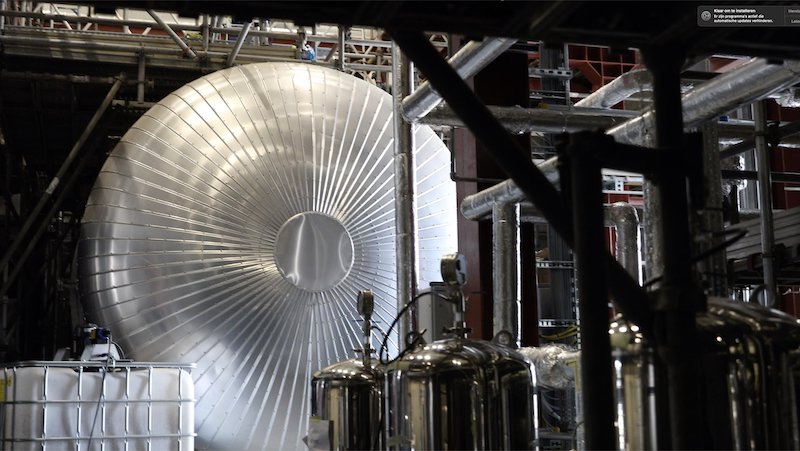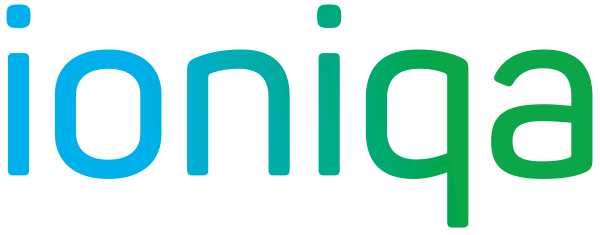In a recently published profile, Lux Research Inc. assessed Netherlands-based chemical recycling company Ioniqa Technologies at its highest score of ‘Strong Positive’. EPPM spoke with Ioniqa CEO and Founder Tonnis Hooghoudt to find out just how disruptive its technology is.
Congratulations on the positive accreditation from Lux Research. What does it mean to Ioniqa to have its achievements recognised in such a way?
An apPETite for disruption
Tonnis Hooghoudt
Obviously, we are very proud of the outcome of Lux Research’s assessment and their strong endorsement. Having an independent company like Lux Research value our company as such is a big compliment to the entire team that has been working on getting Ioniqa to where it is today. Bringing a disruptive technology to the market is challenging and requires perseverance. This accreditation is a sign that we are more than on the right track, and will motivate Ioniqa to work even harder to establish our ambition of providing a closed loop for PET.
How do you anticipate revenue growth as a result of this accreditation?
Lux Research is a well-known company when it comes to the strategic development of upcoming technologies. It is believed that all major players in the plastic value chain market will have access to the publication and that it will create an incentive to intensify discussions on licensing or revive past contacts. Since we are at the point of commercialisation for our licensing business, it is believed that the accreditation is a good catalyst for further commercial discussions. What is more, we are now looking forward to having these discussions with the market.
Which brand-owners do you expect will benefit from the use of Ioniqa technology and how will it help achieve sustainability targets?
From the end markets it is seen that there is a huge supply-demand gap, that will not decrease in the coming years. Brand-owners in the packaging and apparel industry are coming in with ambitious pledges, which is not corresponding with current feedstock supply. Also, European legislation is driving the necessity to incorporate recycled content. By providing a technology that can make use of more PET waste materials and upcycle it into high-quality raw materials, enables us to be more efficient with this valuable polymer. In that sense, it will benefit all brand-owners since more waste will be used that can be upcycled to the highest possible quality and for the most demanding applications.
Can you explain how PET beverage bottles are recycled?
Recycling of PET bottles is less straight forward than most consumers think. First of all, the bottles are collected via general waste, deposit return schemes or curb-side collection. After collection the PET is sorted into bales for further processing. The PET bales are then processed in to flakes, which constitutes a number of different steps. These are sorting (mainly cap removal), washing (label removal), drying, flaking and further sorting. Finally, you end up with a high-quality PET flake product that can be clear and transparent, or a green-blue mixed colour. These can be used in textile, sheet, tray and bottle applications via extrusion or melt-in polymerisation.
Numerous further sorting steps take place after the PET has been grinded into flakes. These steps then help remove impurities that are not suitable for downstream processing, these include tray material, opaque and black packaging, polyolefins, PVC, paper and aluminium, for example. To ensure all this material is removed, a lot of PET must also be discarded from the process.
At Ioniqa, we take these side streams and valorise them in high-end raw material that can be used in making new bottles produced out of 100 per cent recycled content. In the near future, we also want to start to use streams other than PET bottles – trays and textiles, for instance. By doing so, more PET can be recycled per kilogram.
How has The Netherlands government helped to establish Ioniqa in the industry?
The Netherlands is very supportive to innovative companies and has a whole host of financial instruments to assist such companies for promoting innovation from initial idea to commercialisation. Furthermore, Ioniqa was named a ‘National Icon’ in 2019, which created the opportunity to discuss the challenges we face in moving towards a circular economy with our government. It also provided an international platform to showcase our solution globally.
In what ways do you expect Ioniqa technology to revolutionise the way PET plastic is recycled in Europe?
Ioniqa’s technology is a disruption in a highly changing market. It offers new feedstock, which is currently overlooked, to be valorised into food contact materials. It connects the waste management and chemical industries and forces the industry to look at production with a fresh pair of eyes. You see this across all chemical recycling activities and it will again raise the question of ‘What is waste?’ even in a legal context. Environmental, sustainability, safety, and trade aspects are currently being reviewed and using new technologies to valorise more waste will challenge the current perspective on the matter.

IONIQA
An apPETite for disruption
In which ways does the company participate with the many Europe-based recycling consortia?
Ioniqa is an active member of Petcore Europe and Chemical Recycling Europe, alongside whom we try to showcase the potential of using alternative recycling methods when it comes to circular economy and sustainability, while producing high-quality and safe products. Ioniqa’s objectives are not different from Europe’s when it comes to the efficient usage of valuable resources. To do so, recycling will be part of the solution.
Ioniqa offers an additional tool in the way we recycle. A tool that prevents PET materials from being incinerated or landfilled, as well as materials that currently can’t be recycled because of their application in safe food packaging, for example. While doing so, emitting less CO2 when compared to PET production from fossil resources, which represents a win-win situation, in my opinion.
And at which trade fairs/conferences can we expect to hear more from Ioniqa this year?
This year, the emphasis is on the Plastic Free World Conference and Expo, which will be held on 10-11 November in Cologne, Germany. The conference is held in combination with the Greener Manufacturing Show and focuses on a wide range of industries looking for the latest technologies and solutions to enhance their sustainability credentials and reduce the impact of their operations on the environment. It will be the first time that Ioniqa will exhibit with a stand, and will be combined with a presentation by Jeroen Bulk, Ioniqa’s CFO. We kindly invite all readers to come and join, to learn more on our offering. Finally, 2022 is of course the year of the K show in Düsseldorf, which is important for the entire plastics industry. It would be great to showcase further progress at that event.
Article from: https://interplasinsights.com/plastics-environment-news/plastics-recycling-innovations-news/an-appetite-for-disruption/
